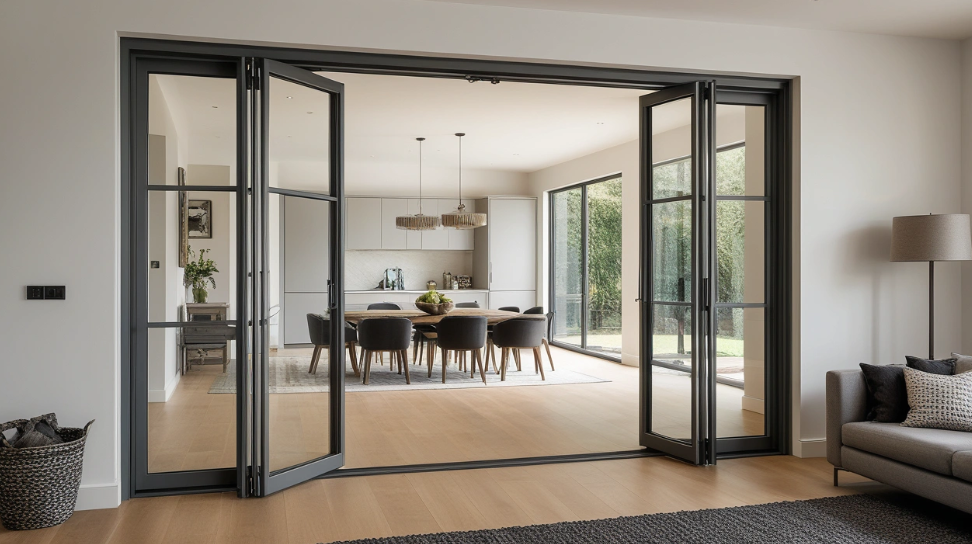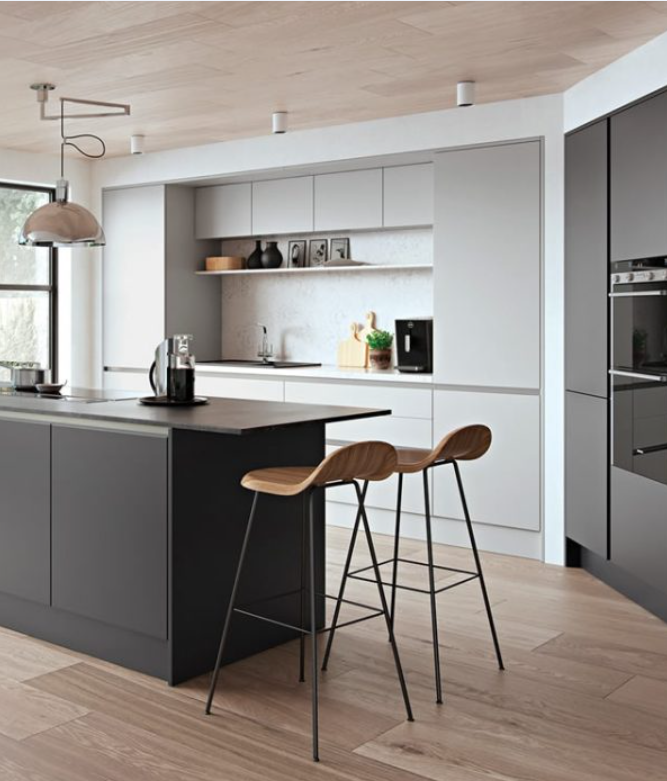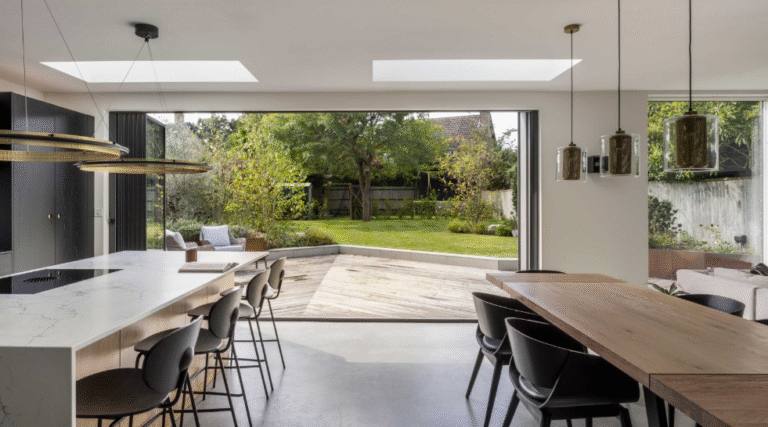How to Choose the Right Aluminum Doors for Commercial Buildings
Choosing the right doors for commercial buildings is more than just a design decision — it’s about balancing functionality, aesthetics, durability, and safety. Aluminum doors have become a leading choice among architects, builders, and business owners for their strength, sleek appearance, and low maintenance requirements. To ensure long-term performance and visual appeal, many professionals rely on APRO Door and Window, a trusted name in high-quality aluminum doors, windows, and curtain wall systems for commercial projects. However, not all aluminum doors are created equal. Selecting the right ones for your building requires understanding the specific needs of your project and how various door types and configurations perform.
In this article, we’ll explore what to consider when choosing aluminum doors for commercial applications, including material quality, performance features, and modern design trends.
1. Understand the Purpose and Function of the Door
The first step in choosing the right aluminum door is understanding its purpose. Is it intended for a main entrance, an internal partition, or an emergency exit? Each type of door has distinct performance expectations.
Main Entrances: Require impressive aesthetics and strong security. Glazed aluminum doors with tempered or laminated glass are ideal, combining transparency with protection.
Interior Doors or Partitions: Focus more on light transmission and modern style. Frameless or slim-frame aluminum doors help create open, collaborative environments in offices or showrooms.
Fire Exits or Service Entrances: Prioritize durability and safety compliance. These doors often have heavier frames, reinforced panels, and may integrate with access control systems.
When defining the door’s function, also consider traffic levels, accessibility requirements, and safety regulations that may influence your choice.
2. Prioritize Material Quality and Structural Integrity
Not all aluminum alloys or finishes are the same. High-quality aluminum doors use premium-grade aluminum profiles that resist warping, corrosion, and weathering over time. Inferior materials may look fine initially but can deform or corrode under harsh environmental conditions.
When evaluating aluminum door manufacturers, ask about:
Aluminum Grade: Look for doors made with high-strength alloys suitable for structural applications.
Surface Treatment: Powder-coated or anodized finishes enhance durability and color retention.
Thermal Break Technology: In climates with extreme temperatures, thermal breaks improve insulation and energy efficiency.
Glass Options: Consider double-glazed or laminated safety glass for enhanced strength and soundproofing.
3. Evaluate Design Flexibility and Customization Options
Commercial spaces often require doors that align with the brand’s architectural identity. One major advantage of aluminum doors is their versatility in design. They can be fabricated in multiple configurations — sliding, folding, swing, or automatic — and customized in various finishes, colors, and glazing patterns.
Key customization considerations include:
Frame Profiles: Slimline frames create a contemporary aesthetic ideal for retail stores or corporate offices.
Color Choices: Powder coating allows a range of RAL colors for brand consistency.
Hardware Integration: Choose hinges, handles, and locks that match your interior style while meeting security needs.
Automation Compatibility: For high-traffic areas, consider automatic sliding or swing mechanisms for convenience and accessibility.
See also: Invisible Home Risks That Could Cost You Thousands
4. Focus on Energy Efficiency and Environmental Performance
Sustainability has become a priority in commercial architecture. Aluminum doors can significantly contribute to energy-efficient building design if constructed with proper insulation and glazing.
Look for the following features:
Thermal Insulation: Thermal breaks in the aluminum frame prevent heat transfer, improving HVAC efficiency.
Low-E Glass: Reflects infrared energy, reducing heat gain while maintaining natural light.
Air and Water Tightness: Proper sealing reduces drafts and prevents water leakage.
Recyclable Materials: Aluminum is 100% recyclable, supporting eco-friendly construction standards.
5. Consider Safety, Security, and Compliance
Commercial buildings must meet strict safety and security codes. Aluminum doors offer excellent protection when paired with the right locking and glazing systems.
Important safety features include:
Impact Resistance: Reinforced glass and frames withstand external force or accidental impacts.
Fire Resistance: Some aluminum doors come with fire-rated cores or glazing for safety compliance.
Locking Systems: Multi-point or electronic locks provide enhanced security.
Access Control Integration: Modern systems can integrate with biometric or card access solutions for secure entry management.
6. Assess Maintenance Requirements
One of the most appealing aspects of aluminum doors is their low maintenance nature. Unlike wood or steel, aluminum does not rust, rot, or warp. However, it still requires basic upkeep to ensure longevity and performance.
Maintenance tips include:
Cleaning the frame and glass regularly with mild detergent.
Checking seals and gaskets for wear and tear.
Lubricating hinges and sliding tracks periodically.
Inspecting locking mechanisms and tightening loose hardware.
With minimal maintenance, a well-manufactured aluminum door can last decades while maintaining its appearance and functionality.
7. Evaluate the Manufacturer’s Reputation and After-Sales Support
The quality of the product is only as good as the manufacturer behind it. When selecting a supplier for aluminum doors, it’s crucial to assess their experience, project portfolio, and service reliability.
Ask these key questions:
How long has the manufacturer been in business?
Do they offer warranties on materials and workmanship?
Can they provide technical support and installation guidance?
Do they have experience with large-scale commercial or architectural projects?
A reputable supplier ensures your doors meet both aesthetic goals and regulatory standards for commercial safety.
8. Factor in Budget and Long-Term Value
While budget is always a factor, choosing the cheapest option may result in higher costs over time due to maintenance, energy inefficiency, or early replacement. Instead, consider the total cost of ownership, which includes installation, durability, and energy performance.
High-quality aluminum doors provide long-term value, offering a better return on investment through superior performance and minimal upkeep.
9. Explore Modern Architectural Trends
Contemporary commercial architecture favors sleek, minimalist aesthetics that emphasize openness and natural light. Aluminum doors fit perfectly into these trends thanks to their clean lines and flexibility.
Current design trends include:
Slim Frame and Large Glass Panels: Maximizing daylight and visual connection.
Black or Dark Frames: A modern industrial look popular in offices and retail spaces.
Seamless Indoor-Outdoor Transitions: Sliding and folding aluminum systems blur the boundaries between interior and exterior.
Smart Integration: Automation and sensor-based operation enhance functionality and user experience.
Conclusion
Choosing the right aluminum doors for commercial buildings is a strategic decision that impacts not only the building’s appearance but also its performance, safety, and efficiency. By considering factors such as functionality, material quality, customization, energy performance, and manufacturer reputation, businesses can make a smart investment that delivers lasting benefits.
Whether you’re designing a corporate office, retail complex, or industrial facility, aluminum doors offer the perfect balance of style and strength. For premium-grade, customizable solutions, aprodoor.com stands out as a trusted partner, delivering innovative aluminum systems that elevate modern architecture.






